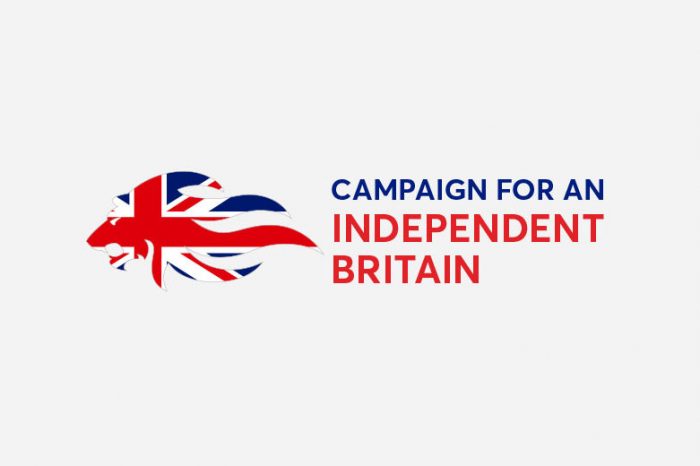The Battle to Leave the EU
A FUTURUS Special
by Anthony Scholefield
Director, FUTURUS
In major political issues there are three battles; the battle to win the contest for ideas or assertions; the battle of aims, inclusive of aspirations, and the battle of plans. The electorate is influenced by the battle of assertions but it also responds to clear aims and plans.
As pointed out by Margaret Thatcher’s policy thinker John Hoskyns, Montgomery did not simply tell British soldiers on the eve of D-Day to make their way to Berlin – he had a plan.
THE EURO REFERENDUM (that never was)
There was no doubt about the aspiration of those who wanted Britain to join the euro. Moreover, Tony Blair thought that offering what was a ‘modern’, ‘international’, idea would be popular and he was slapdash about his planning. It would be generous to credit Blair with an aim – he only had an aspiration.
Two things stopped a euro referendum taking place. The first was Gordon Brown’s caution. But, much more important, was the fact that Blair never had a plan to get Britain into the euro.
In retrospect, from his angle, Blair should have taken Ken Clarke’s advice, and that of his own pollster, Robert Worcester. They both advocated an enabling referendum, “I would have preferred the referendum to be held on the issues of principle with the timing and details having been left to the government and Parliament to decide”.
Blair never seemed to understand that getting Britain into the euro was a complicated matter. Winning a referendum did not mean British entry into the euro. To enter, Britain had to re-enter the ERM, decide in conjunction with all the other EU governments, EU Parliament and the EU Commission what the entry rate would be, get a recommendation from the EU Commission that Britain had passed its convergence tests, change the Bank of England’s mandate and give the electorate their promised ‘final say’.
In short, Blair never realised he needed a plan and never planned.
As Roger Bootle wrote (Sunday Telegraph, 10th June 2001):
“Now consider what has to be done. First, the British authorities have to decide what an acceptable rate is and from the history showing the chart, you can see this is no easy task. Then they have to agree a rate within that range with our European partners. Then they have to get the pound to that level – and keep it there. And then they have to win a referendum.”
By contrast, while they had to fight the battle of ideas and assertions, the supporters of the pound had a very simple aim and a simple plan – to keep sterling.
THE SCOTTISH INDEPENDENCE REFERENDUM
There was always some doubt about what were the aims of the Scottish Nationalist Party, in particular whether Alex Salmond really wanted independence as opposed to greater devolution.
However, the SNP aim now is, supposedly, for independence and they have made numerous assertions about the benefits to Scotland. Like Blair, they are strong on aspiration but their aim is hazy.
Yet whenever the consequences of independence are discussed it is clear that the SNP rely on assertions and lack a plan. There is evidently no plan concerning the question of a separate currency, border controls on movement of people, entry and the terms of entry into the EU and many other issues. The SNP has acted as though their proposals will, and must, be accepted by others, psychologically revealing that it does not understand what independence really means.
Alex Salmond has proceeded on the basis that winning an enabling referendum will solve all his problems. But his lack of a plan will not only crucify the Scottish economy, especially the financial sector, if Scotland votes for independence, the same lack of a plan will reflect back to the electorate and undermine the
argument he puts to the Scottish people so as to diminish his chances of winning.
So I confidently predict that, if Scotland votes for independence, that independence will not take place or, if persisted in, will lead to a Darien-type chaos.
There is no SNP plan for EU membership, no plan for defence links with NATO, no plans to take on debt or divide up oil revenues and, above all, no plan for a currency. In truth, the SNP has had various currency offers, a Scottish currency, joining the euro, and its current offer – staying with sterling for the time being (in itself a destabilising proposition).
The fact is that Scotland has a proportionately huge financial sector which is overwhelmingly dependent on English bank deposits, English pension funds and English investors. It is absolutely absurd, and would indeed breach their fiduciary duty, for any entity in England to keep its assets in another jurisdiction from where its liabilities are. Despite sharing a single currency, no German or French pension fund, Council, university or company, keeps its investment or cash in Portugal or Slovakia.
Of course, the idea of Scottish independence is doing damage to the Scottish financial sector already. Think of any English person considering a pension or long-term investment for many years. Offered a choice of an English or Scottish provider, the choice is obvious, and for directors and funds there is the fiduciary duty as well.
The supporters of the union have a clear and simple plan – to keep the union. The main fear of union supporters in England is that Westminster politicians will, in fact, agree to Scotland having, in some way, the benefits of independence without the responsibilities.
THE PROPOSED REFERENDUM OF 2017
With Cameron, his aims and aspirations seem to be purely political in the sense of domestic politics and party politics. He also wishes to be at the ‘top-table’. His remarks about “not banging on about Europe” show a remarkable ignorance of the power politics surrounding him as well as a deep reluctance to reflect on political realities. He lags far behind the electorate.
David Cameron has repeatedly said he has a plan. Rather he has an aspiration. His aspiration is to renegotiate and then present the results to the electorate and then get a YES vote to stay in a renegotiated EU.
WHAT IS THE ASPIRATION, THE AIM AND THE PLAN FOR WITHDRAWALISTS?
1) What are the possible exit strategies?
– UKIP wins a Westminster majority.
– A major Party converts to a withdrawal policy.
– A referendum is held on whether or not to remain in the UK.
– Britain is asked to leave by mutual agreement.
– Other countries decide to leave.
– ANOther.
Quite clearly the most likely and most immediate trigger is an in-out referendum.
2) To lose an in-out referendum would be catastrophic. To have such a referendum unless the out vote is well ahead in the polls would lead to such a loss because of the status quo effect whereby voters prefer not to risk change.
3) To win an in-out referendum, it is essential to present a simple, clear plan of exit which will work and can be demonstrated to work and which all withdrawalists can subscribe to. This would enhance a polling trend in favour of withdrawal.
4) Further, winning an in-out referendum will still leave us with a pro-EU Executive. The only way to compel such an Executive to actually work for withdrawal is to have a clear simple plan presented and endorsed in the referendum.
5) Without a clear plan presented at the referendum, the initiative will be handed to a pro-EU Executive which can be counted on to prevaricate and re-negotiate, working for a further referendum in due course.
6) The EEA arrangement with some modifications for free movement (see my article on Leichtenstein) has to be the way forward.
– Britain is itself already a sovereign signatory to the EEA agreement.
* It is on the shelf. The outline and details are already known.
* It is in accordance with the EU’s own procedures.
– It can be negotiated quickly.
– It takes all the business anti-withdrawal arguments out of the debate.
– It attains the objectives of sovereignty and takes us off the integration path, plus massively reduces costs, except for the Single Market. Can we live with this?
8) David Cameron on the Andrew Marr programme 11th May 2014 kept saying he had ‘a plan’ and only the Tories had ‘a plan’. This seems to me a sensible move by him (from his point of view) and could be a possible road testing of his next argument: “We have a plan and the eusceptics do not have one.”
9) In the 1975 referendum a whole page of the short ‘Yes’ leaflet was devoted to listing the various alternatives offered by the ‘No’ side to EU membership and ridiculing their contradictions. (see Appendix)
10) Some questions needs answering:
a. It is asserted by Ian Milne that the UK is a separate signatory to the EEA and thus would automatically stay in this if it left the EU. Is this watertight?
b. Would the EFTA countries welcome UK membership? This needs to be nailed down.
c. What exactly is the position in the future with EU migrant workers in the UK? Is it suggested (as I would recommend) that work rights should be gradually withdrawn? Otherwise, as these migrants settle and acquire families, the capital cost of importing low income workers via the welfare state will be enormous and there will be diversions of our already meager capital investment to providing all the capital costs of migrants (some of this has already happened of course).
d. We need a list of exactly what areas of policy determined by the EU will be returned to national control under EEA and what remains with the EU.
11) Gladstone: In one of his most famous speeches, on 10th August 1870, Gladstone laid down what needs to be done. This speech related to Britain’s position in the Franco-Prussian war of 1870 and extracts were quoted extensively by Sir Edward Grey in his speech of 3rd August 1914. It was cited by Asquith as determining Britain’s position on the Belgian Treaty in a letter to Bonar Law on 2nd August 1914, a day before Britain declared war:
“It brings the object in view within the sphere of the practicable and attainable instead of leaving it within the sphere of what might be desirable, but which might have been most difficult, under all the circumstances, to have realized.”
12) We are trying to win a referendum and win a referendum in such a way that a pro-EU executive must carry out the result. We are fighting the referendum with a plan with an instruction to the Executive. We are not in a competition for establishing the very best theoretical basis for Britain in a post-EU world, we are establishing a clear, tested, business-friendly plan which should take on the aura of ‘inevitability’, such as preceded the establishment of American and Indian






